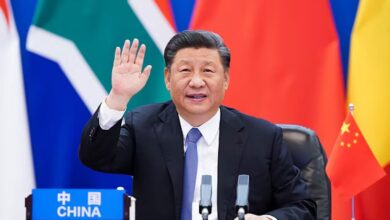60 Japanese businesses attended the African investment forum – Adesina

There is growing interest in Japan by the government, parliamentarians, mega companies and startups to invest more in Africa, as revealed by the The President African Development bank Group, Akinwumi Adesina.
Akinwumi Adesina hinted that over 60 Japanese businesses were at the African Investment forum, organized to explore ways to harness Africa’s strategic mineral wealth for the continent’s development, particularly by adding value by processing minerals before export. The event was held in Marrakesh Morocco from the 8th to 10th of November.
The Africa Investment Forum is a multi-stakeholder, multi-disciplinary platform that advances projects to bankable stages, raises capital, and accelerates deals to financial closure. Its vision is to channel capital towards critical sectors to achieve the Sustainable Development Goals, the African Development Bank’s High 5s and the African Union’s Agenda 2063.
Read Also : How the supplementary budget will affect students, workers and poor households in Nigeria
Since it was launched in 2018, the Africa Investment Forum has mobilised nearly $143 billion in investment interest. Its centerpiece is the annual three-day Market Days event, which brings together thousands of global investors, heads of development finance institutions, and business and government leaders to advance critical investment transactions to closure.
Why is Japan investing more in Africa?
Japan is investing more money in Africa for a number of reasons. Diversifying its energy and mineral resource supplies is crucial for the country’s manufacturing and technology sectors, which is one of the reasons. Furthermore, Japan hopes to create new chances for banks and trade companies as well as financially encourage exports from Japanese enterprises to Africa. The Japan Bank for International Cooperation (JBIC) specifically extended a $12.5 million three-year export credit line in 2007 followed by a $80 million seven-year credit line in 2016. Japan’s investment in Africa has also been driven by the country’s return to the international stage through diplomatic activity. The country is further looking to develop partnerships with African businesses to enhance agricultural and food production, climate change adaptation, and human resource development in the continent.
But critics have highlighted that Japan’s investment strategies in Africa have yielded little benefits since the first edition of TICAD in 1993, with the balance of Japan’s FDI in Africa, which stood at $12 billion at the end of 2013, declining to about $4.8 billion at the end of 2020, compared to $65 billion from the UK, $60 billion from France, $48 billion from the US, and $43 billion from China in the same period. The number of Japanese companies operating in Africa slowly increased from 520 in 2010 to 796 in 2019 but total investment has fallen in recent years.
Investing in Africa is sound business and a sustainable corporate strategy
Africa is the most profitable region in the world. A report by the UN Conference on Trade and Development states that between 2006 and 2011, Africa had the highest rate of return on inflows of Foreign Direct Investment: 11.4%. This is compared to 9.1% in Asia, 8.9% in Latin America and the Caribbean. The global figure is 7.1%.
Examples of companies benefiting from bountiful profits in Africa abound: Sonatrach’s turnover from oil and gas alone was $33.2 billion; MTN Group’s turnover was about $10 billion; and Dangote Group’s turnover was $4.1 billion—all in 2017. A variety of factors drive up Africa’s profit prospects, making it imperative for European, North American, Asian, and Latin American businesses to invest, helping to foster the continent’s economic progress.
Africa’s economic growth prospects are among the world’s brightest. Six of the world’s 12 fastest-growing countries are in Africa (Ethiopia, Democratic Republic of the Congo, Côte d’Ivoire, Mozambique, Tanzania, and Rwanda). Further, between 2018 and 2023, Africa’s growth prospects will be among the highest in the world, according to the IMF. Good news: sectors where foreign companies could have a comparative advantage, such as banking, telecommunications and infrastructure, are among the drivers of current economic growth in Africa—creating clear investment opportunities for foreign businesses.







